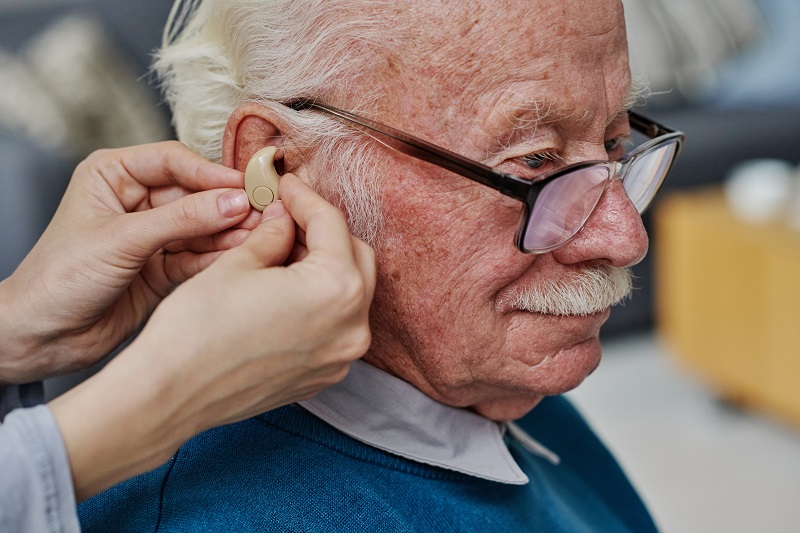
Hearing loss is a prevalent issue affecting individuals globally, with its incidence increasing with age. Approximately one-third of individuals aged 60 and older experience varying degrees of hearing impairment. Notably, research has established a significant correlation between an inflated risk of developing dementia and hearing loss. This finding emphasizes the necessity of addressing this frequently neglected concern.
A 2020 study published in The Lancet identified a significant association between hearing loss and an increased risk of cognitive decline and dementia, with a reported increase of 1.9 times, particularly concerning Alzheimer’s disease. This relationship is inherently complex. While it remains uncertain whether hearing loss directly causes dementia, the evidence suggests that it constitutes a notable risk factor. Despite the strength of this association, it is still not fully understood whether hearing loss directly contributes to the onset of dementia or if shared underlying factors link both conditions.
The Connection Between Dementia And Hearing Loss
Cognitive Load and Resource Competition
Hearing loss necessitates the brain to exert additional effort to process auditory stimuli, which diverts cognitive resources from tasks involving memory and critical thinking. This increased cognitive burden has the potential to accelerate cognitive decline over time.
Social Isolation and Depression
Hearing impairments frequently lead to diminished social engagement, which is a recognized risk factor for the development of dementia. Social isolation can result in reduced cognitive stimulation and heightened feelings of depression, both of which are associated with a risk of dementia.
Brain Atrophy and Structural Changes
Neuroimaging studies demonstrate that hearing loss is associated with accelerated atrophy in specific brain regions, notably the temporal lobes, critical to memory and auditory processing. A 2024 study conducted by Johns Hopkins University found that hearing loss contributes to an increased rate of brain shrinkage, which may, in turn, heighten the risk of developing dementia.
Shared Pathways and Common Causes
Research indicates that impaired hearing and dementia may share common underlying factors, such as vascular issues or inflammation, which can adversely affect both auditory and cognitive pathways.
Hearing Aids and Interventions
Using hearing aids to address impaired hearing has demonstrated significant potential in mitigating the risk of dementia. A 2023 study from Johns Hopkins indicated that patients with hearing issues who used hearing aids demonstrated a significant decrease in cognitive decline compared to their untreated counterparts. This finding underscores the importance of addressing hearing impairment to enhance cognitive health. Recent findings suggest that improving auditory input and social engagement through hearing aids can support brain health.
However, the Alzheimer’s Society notes that while hearing aids are associated with fewer memory and thinking problems, more research is needed to fully understand their impact on dementia risk.
Severity and Timing
The likelihood of developing dementia increases with the severity of impaired hearing. A 2024 Johns Hopkins study of adults, lasting 12 years, showed that mild hearing loss doubled dementia risk, moderate loss tripled it, and severe hearing loss made individuals five times more likely to develop dementia. Timing is also crucial, with midlife hearing loss (ages 40–65) being particularly significant, as it may be an early symptom or risk factor for dementia, according to the Alzheimer’s Society.
Ongoing Research
The connection between impaired hearing and dementia is well-documented; however, there remains ongoing debate regarding the nature of their association. Some researchers contend that hearing loss may not be a direct precursor to dementia but rather a component of a common pathological process, such as vascular damage.